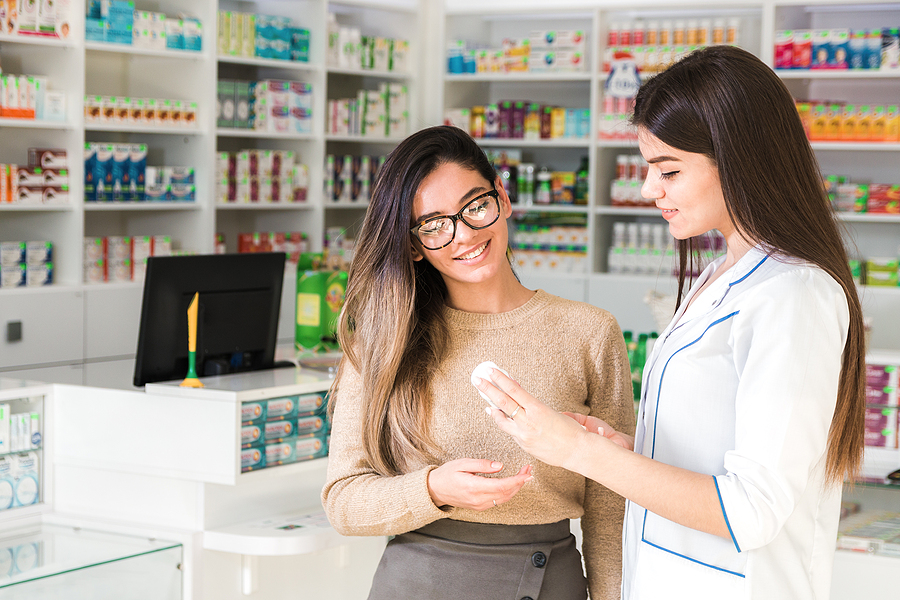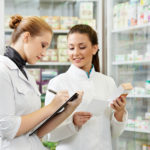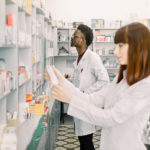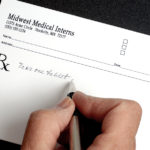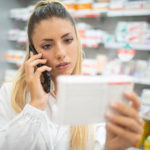Facing the Pandemic: “Unmasking” Tips and Tricks for Pharmacy Technicians
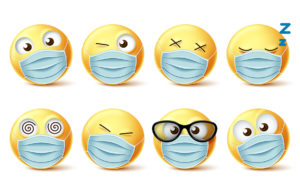
Let's face it, folks, no matter how you look at it 2020 has been a tough year. Much about the pandemic is unknown and may remain that way for quite some time, but one certainty is the impact that wearing a mask and social distancing can have upon transmission of COVID-19. What is less clear is the impact masks and physical separation have on effective communication within the pharmacy. Keep reading for some real-world tips to improve these situations.
The pharmacy environment is a bustling and often stressful workplace, and in current times customers may be in an even bigger hurry to grab their medications and hit the road. Despite this, it remains important for the pharmacy technician to communicate with patients and customers in a clear and precise manner even while wearing a mask and social distancing. Being mindful of certain tips and tricks can help reduce communication errors, clarify nonverbal messages, and avoid facial irritation or "maskne" caused by long shifts wearing a mask.
RELATED: Working as a Pharmacy Technician
"Excuse Me, But What Did You Just Say?"
Since masks can muffle sound, and speech becomes quieter with distance, it is tougher than ever for pharmacy technicians to effectively relay prescription or health information to customers. For example, technicians providing price quotes to customers for a medication or co-pay may use the word "fifteen" as in, "Your new prescription has a $15 co-pay." This amount may be misheard as "fifty" instead, which would certainly cause some stress for all involved. One tip when sharing numerical information with a customer is to use multiple ways to state a quantity, such as "That will be fifteen dollars, one-five" or "Your prescription's instructions read forty units of insulin, four-zero." Pharmacy technicians can further improve communication by facing the customer directly, speaking louder and slower, and moving to a quiet counseling area if possible.
The Eyebrows Tell a Story
Masks affect our ability to see each other's facial expressions and can impact our understanding of what we are hearing. On the other hand, thoughtful use of hand gestures and body language can send a strong message of customer service and empathy. For example, pharmacy technicians should aim to relax their shoulders (not always easy), try not to cross their arms in front of their body, and nod to acknowledge listening and understanding of pharmacy customer concerns. In addition, eyebrows tell the story! Raised eyebrows imply happiness, pinched eyebrows can mean sadness, and "V" shaped eyebrows often connote anger or frustration. In addition to careful nonverbal communication, the pharmacy team should consider removing physical barriers that could impede the travel of sound or block customer view, such as over the counter (OTC) item displays or other signage. The Hearing, Speech, and Deaf Center even provides options for making or purchasing clear masks, an excellent option for team members working with deaf or hard of hearing customers who may rely on lip-reading.
2020 and Beyond…What's Next?
Some jobs just aren't meant for working from home, and most pharmacy personnel will not have the option to work in pajamas and forgo makeup or deodorant for a day. If working retail during a pandemic wasn't stressful enough, now pharmacy technicians must also deal with a certain type of acne associated with facial coverings, affectionately known as "maskne." That's right, there's even a nickname for this condition brought to us by 2020. This type of skin outbreak is actually called "acne mechanica," and it is caused by pores that become blocked by sweat, makeup, dirt, or oil. Before the pandemic, this condition was commonly found among athletes who were required to wear sports gear with helmets or straps, or on the armpits of patients using crutches.
These days, the friction of wearing a mask for long periods of time can clog pores, and the mask itself can lead to increased humidity and further exacerbate outbreaks. Strategies to help reduce the risk or severity of acne associated with wearing a mask include washing cloth masks daily and replacing disposable masks often. If an outbreak should occur, it is not uncommon to scrub excessively or too hard, which can actually worsen an outbreak. Instead, it is recommended to wash with a gentle facial cleanser and avoid products that are overly drying. Lotions that contain hyaluronic acid can also help keep skin moist, and products containing ceramides may provide a healthy protective barrier between the mask and the skin.
Don't forget to give your face a rest and remove your mask when it’s safe to do so, such as while driving or at home, unless taking care of a loved one and needing to take precautions. Take care of your face, and yourself! We can do this together.
